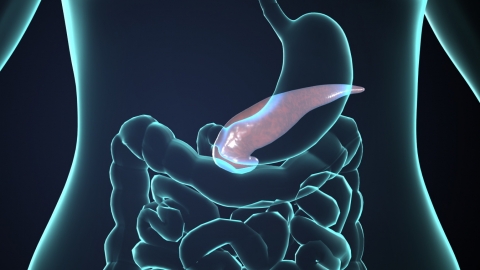How to treat intestinal obstruction caused by pancreatitis
In general, the treatment methods for intestinal obstruction caused by pancreatitis mainly include fasting and gastrointestinal decompression, fluid replacement therapy, medication, surgical intervention, and nutritional support. A detailed analysis is as follows:

1. Fasting and Gastrointestinal Decompression
Fasting prevents food from stimulating gastrointestinal secretions, reduces the burden on the gastrointestinal tract, and helps prevent worsening of pancreatitis and intestinal obstruction symptoms. Gastrointestinal decompression involves inserting a nasogastric tube to remove accumulated fluid and gas from the stomach, thereby reducing intraluminal pressure in the gastrointestinal tract, relieving bowel distension, improving blood circulation in the intestinal wall, and creating favorable conditions for recovery of bowel function.
2. Fluid Replacement Therapy
Pancreatitis often leads to significant fluid loss, while intestinal obstruction can easily cause dehydration and electrolyte imbalances. Fluid replacement therapy involves intravenous administration of normal saline, glucose solution, potassium chloride solution, etc., to replenish lost fluids, electrolytes, and energy, maintain stable circulation, correct acid-base disturbances, and protect vital organ functions.
3. Medication
Drug therapy aims to control both pancreatitis and relieve intestinal obstruction. Under medical guidance, patients may receive somatostatin or octreotide injections to inhibit pancreatic secretion and reduce pancreatic inflammation; cefoperazone-sulbactam sodium injection to prevent infection; and pethidine hydrochloride injection to alleviate severe abdominal pain.
4. Surgical Treatment
If conservative treatments fail and complications such as bowel necrosis, perforation, or severe obstruction occur, timely surgery is required. Common procedures include adhesiolysis (to release intestinal adhesions) and bowel resection with anastomosis. These surgeries aim to relieve obstruction, remove necrotic bowel segments, restore intestinal patency, and prevent life-threatening progression of the disease.
5. Nutritional Support
In the early stage of treatment, parenteral nutrition (intravenous feeding) is primarily used to meet the body's metabolic needs. As bowel function gradually recovers, enteral nutrition is introduced via nasogastric or other routes using easily digestible nutrients. This promotes gastrointestinal recovery, enhances immune function, and supports overall healing.
During treatment, patients must strictly follow medical advice and actively cooperate with all therapeutic measures. In the recovery phase, diet should be reintroduced gradually, starting with liquids, then progressing to semi-liquids and soft foods, avoiding greasy and spicy foods. Regular follow-up evaluations are essential, and any abnormalities such as worsening abdominal pain or fever should be reported to the physician immediately.










